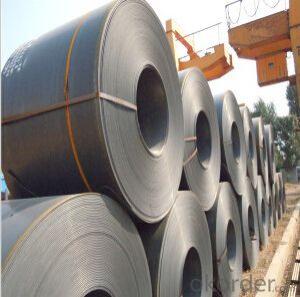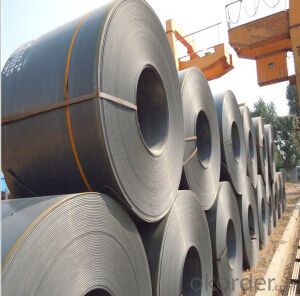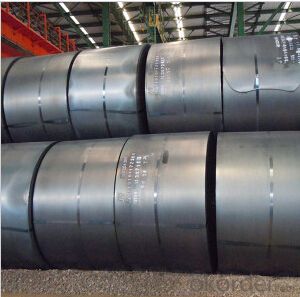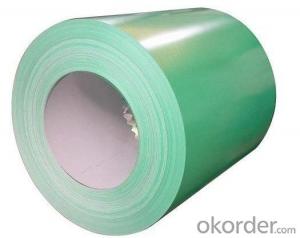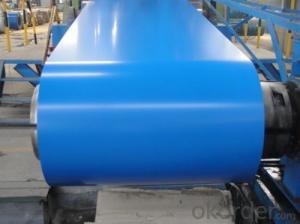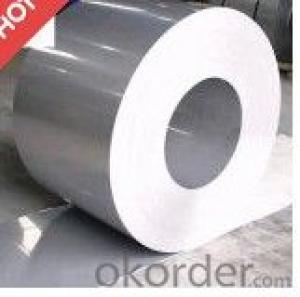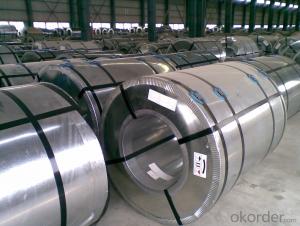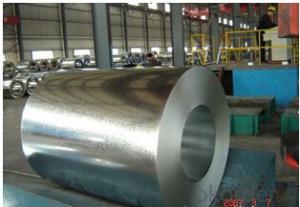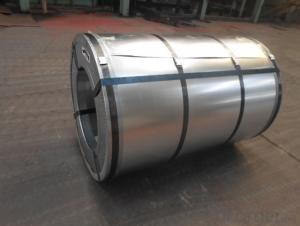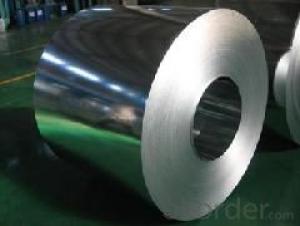Competitive Galvanized Steel China Supplier
- Loading Port:
- Tianjin
- Payment Terms:
- TT OR LC
- Min Order Qty:
- 25 m.t.
- Supply Capability:
- 10000 m.t./month
OKorder Service Pledge
OKorder Financial Service
You Might Also Like
Basic Info.
Model NO.:dx51d DX52D DX53D
Surface Treatment:Galvanized
Certification:ISO, SGS
Technique:Cold Rolled
Standard:ASTM, JIS
Application:Building and Construction
Steel Grade:Q195
Thickness:0.16-3.0mm
Width:Upon Customr′s Requirement
Length:Upon Customr′s Requirement
Surface:Regular Spangle
Inside Diameter:508 610mm
Outside Diameter:Upon Customer′s Requirement
Packing Condition:with Wood Pattet
Sample:Available
Export Markets:Global
Additional Info.
Packing:Sea Worthy Packing
Standard:JIS 3302, EN 10142
Origin:China
HS Code:72104900
Production Capacity:300, 000tons/year
Product Description
The Feature of Galvanized Steel:
Commodity: Galvanized Steel in coil or sheet
Standard: JIS G3302 SGCC, commercial quality of the Steel base.
Thickness range of the Galvanized Steel coil: 0.14mm to 3.0mm
Zinc coating from 50-275g/m2
Tolerance of thickness of the Galvanized Steel Roll: +/-0.03mm
Width range: 700mm to 1250mm
Tolerance of width: +/-3.00mm (aiming to +/-2.00mm)
Coil weight of Galvanized Steel coil: According to Clients' requests.
Coil ID: 508 mm
Packing of Galvanized Steel coil: Seaworthy, in container
Note of the GI: Special width can be requested, the small order can be negotiated.
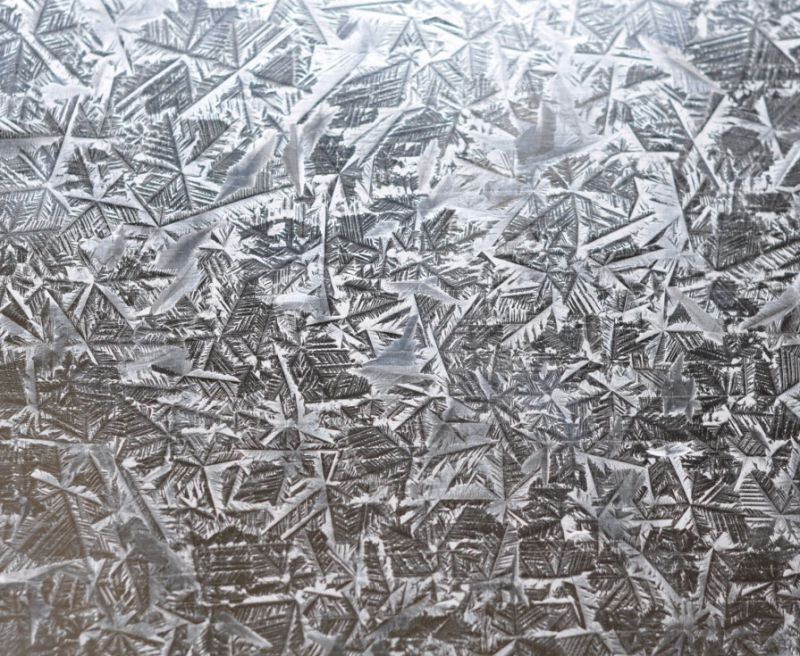
FAQ
1.What's your MOQ?
25MT, it is for one container.
2.Do you have QC teams?
Yeah, sure, our QC team is very important, they will keep the quality control for our products.
3. What's your normal delivery time?
Our delivery time about 10-20days for standard sizes, if you have other requirements like hardness and width ,it is about 20-40days. But don't worry ,we also try our best for the delivery time ,because time longer and our cost is higher.
4.Are the products tested before shipping?
Yes, all of our PPGI and GI was qualified before shipping. We test every batch every day.
- Q: How are steel coils coated for specific applications?
- Steel coils are coated for specific applications using a process called coil coating. In this process, the steel coils are cleaned, treated, and then coated with a layer of paint or other protective material. The coating is applied evenly and precisely to ensure optimal performance and durability in the intended application.
- Q: How do steel coils contribute to the energy storage industry?
- Steel coils contribute to the energy storage industry in several ways. Firstly, steel coils are used in the manufacturing of energy storage systems such as batteries. The steel casing provides structural support and protection to the battery cells, ensuring their safety and longevity. Without steel coils, the batteries would be more vulnerable to damage and would not be able to function effectively. Additionally, steel coils are essential in the construction of flywheels, which are another form of energy storage technology. Flywheels store energy by spinning a rotor at high speeds and then releasing the stored energy when needed. Steel coils are used to create the rotor, which needs to be strong, durable, and capable of withstanding the high rotational forces. The magnetic properties of steel also help to enhance the efficiency of energy transfer within the flywheel system. Furthermore, steel coils are used in the production of compressed air energy storage (CAES) systems. CAES systems store energy by compressing air and then releasing it to generate electricity when required. Steel coils are utilized in the construction of the air storage chamber, ensuring its integrity and preventing any leakage or damage. The robustness of steel coils makes them ideal for withstanding the high pressures involved in the compression process. In summary, steel coils play a crucial role in the energy storage industry by providing structural support, durability, and protection to various energy storage technologies. Whether it is in batteries, flywheels, or CAES systems, steel coils contribute to the efficient and safe storage of energy, helping to promote the development and adoption of sustainable energy solutions.
- Q: What are steel coils used for?
- Steel coils are used in a wide range of industries and applications, including manufacturing, construction, automotive, and appliances. They are commonly used in the production of various metal products such as pipes, tubes, sheets, and wires. Steel coils provide strength, durability, and versatility, making them essential in many industrial processes.
- Q: I am making a sword of 1060 carbon steel and would like to know how to heat treat it once it's ready, could anyone help please?
- I've okorder for back and forth communication. I could type up some lengthy post, you'd read it and be like I don't have that piece of gear and all my time is wasted.
- Q: Im going to buy T-304 Stainless Steel exhaust tips for my truck. Is T-304 Stainless Steel good metal?
- Stainless steel is available in 2 grades - 304 and 316. The 304 has traces of ferrous to make it adaptable for the intended purpose. The 316 is non-ferrous and a bit more expensive. Whereas the 316 will not inhibit rust, the 304 will show some flecks (which can be cleaned away) over a period of time. It, however, is as good as the other.
- Q: What are the dimensions of steel coils used in the agricultural structure industry?
- The dimensions of steel coils utilized in the agricultural structure sector may differ based on the particular application and requirements at hand. Nevertheless, standard dimensions for steel coils in this industry span from 0.5mm to 3mm in thickness and from 600mm to 1500mm in width. The length of the coils can also vary, but typically falls between 1000mm and 3000mm. These dimensions afford flexibility in constructing agricultural structures like barns, sheds, and storage facilities, all while ensuring ample strength and durability. It is worth noting that precise dimensions may vary depending on the manufacturer and the unique demands of the agricultural project.
- Q: What are the dimensions of steel coils used in the transportation equipment industry?
- The dimensions of steel coils utilized in the transportation equipment sector may differ according to specific demands and applications. Nevertheless, there exist some prevalent measurements that are extensively employed. Typically, the width of steel coils used in the transportation equipment industry ranges from 600mm to 2000mm (24 to 78 inches). This width is selected to ensure compatibility with the machinery and equipment employed in transportation, such as trucks, trailers, and railcars. The thickness of steel coils exhibits significant variation depending on the specific application and desired material strength. However, common thickness ranges for steel coils in the transportation equipment industry generally fall between 0.5mm and 6mm (0.02 to 0.24 inches). The inner diameter of steel coils utilized in the transportation equipment industry is typically standardized at either 508mm (20 inches) or 610mm (24 inches). This standardization facilitates easy handling and compatibility with industry machinery. The outer diameter of steel coils can differ depending on the coil's width and thickness. Nonetheless, typical outer diameter ranges for steel coils in the transportation equipment industry generally span from 1000mm to 2200mm (39 to 87 inches). It should be recognized that these dimensions are not fixed and can be tailored to specific requirements and applications within the transportation equipment industry.
- Q: what do they use to make stainless steel?and can stainless steel be melted again and again without losing it's Specifications
- The stainless steel is a family of ferrous alloys containing at least 11% chromium. The effect of this amount of chromium in steel in reducing corrosion is dramatic. There are many grades of stainless steels. By varying the chemical composition, heat treating, and cold-working, a wide range of properties is achieved. There are three types of precipitation hardening stainless steels: *martensitic types, which are supplies in the martensitic condition, are hardened by a simple aging treatment of the fabricated part. *Semi austenitic types, which are supplied in the austenitic condition, are transformed to martensite by special heat treatment before precipitation hardening. *the austenite in the austenitic types is precipitation hardened directly. The heat treatments of precipitation-hardening stainless steels are chosen to optimize mechanical properties. Precipitation hardening generally results in a slight increase in corrosion susceptibility and an increased susceptibility to hydrogen embrittlement.
- Q: Hey do you know what is Steel Arch Building and how it looks like exactly??
- Typically, okorder /
- Q: I've played guitar for years, now I want a steel guitar. As a beginner, to learn and experiment with, which one would be better for me?
- Pedal steel is very difficult. You need to co-ordinate both hands, both feet and both knees to play it effectively. Lap steel is a lot easier. I suppose it depends how much of a challenge you want. A good lap steel guitar is usually cheaper than a good pedal steel too, so that's another consideration to take into account.
Send your message to us
Competitive Galvanized Steel China Supplier
- Loading Port:
- Tianjin
- Payment Terms:
- TT OR LC
- Min Order Qty:
- 25 m.t.
- Supply Capability:
- 10000 m.t./month
OKorder Service Pledge
OKorder Financial Service
Similar products
Hot products
Hot Searches
Related keywords
